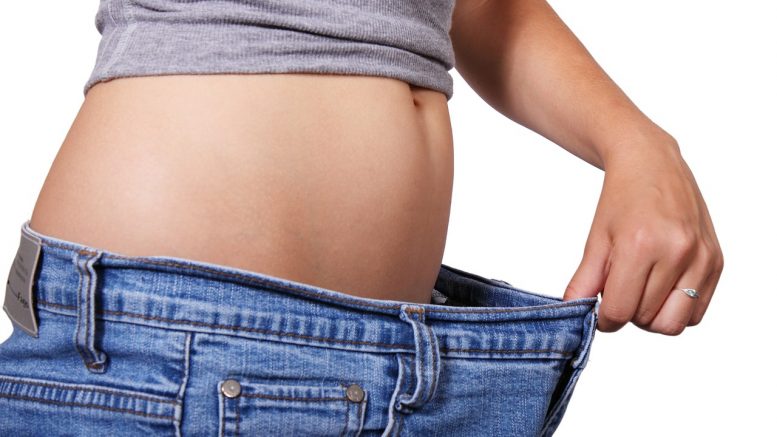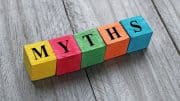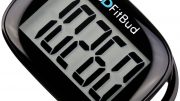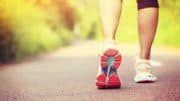Even more weight loss mistakes to avoid.
You plan you diet carefully and limit snack to only the healthier foods. But are you making good choices. This series is all about looking at the not so smart choices you might have made.
- Low-fat diets: Recent studies have debunked the age-old claims that we should avoid fat at all costs. I have always loved the statement that “fat makes you fat”. I guess it makes sense, but when you seriously think about fatty foods, they tend to make you feel satisfied quicker. Now, I am not suggesting that you sit down with a tub of lard and a spoon. If ti did not make you sick of your stomach, it would be stupid. A meta-analysis from Lancet found that low-fat diets do not offer any weight loss benefit over other types of diets[1]. The low-fat revolution kicked in in full force in the 1980s and this is about the same time and what happened? American’s got fatter. Low-fat diets do not work and there is evidence that these diets are not healthy.
- Liquid meals: No I am not talking about beer. I am also not talking about meal replacement drinks. There is evidence from a meta-analysis that liquid meal replacement drinks can have a place in successful weight loss[2]. I am not sure how this plays with maintenance since I am certain most patients would not continue to “have a shake” for one of the meals of the day when they finally lose weight. Rather, I am referring to sugar-containing drinks and fruit juices which both contain high amounts of sugar and very little nutrient value. You would be better off eating whole fruit and having a glass of water. One study clearly shows fruit juice leads to short stature and obesity[3]. Another tie sugar-containing beverages to not only to obesity but also our increasing rates of diabetes type 2 and heath disease[4].
- Travel plans: There is not much research to back this one up, but my experience as a medical provider had taught me that travelers who make plans about where they are going to eat, what they are going to eat when they are going to eat each meal, and there travel exercise plans prior to leaving home are more successful at losing and keeping the weight off. I know this is an easy one so make a plan prior to leaving home.
- Eating too fast: Eating too fast doe in to allow your brain to register that your stomach is full. Fullness is signaled by the stretch of receptors in your stomach wall as you eat but this stretch takes time and it is individual dependent. One study shows that eating slower leads to less calorie intake even when food is unlimited[5]. The slower eating group did drink more water in addition to eating less. Another study found that individuals who chew more eat fewer calories[6].
- Eating lunch at your desk: A study performed by Kant looked at dietary habits in those that eat breakfast and those who don’t. Kant found that people eat more calories at lunch if they skip breakfast[7]. They also found that workers who brought their lunch back to their desks tended to have higher obesity rates.
The bottom line: Avoiding mistakes or road bumps is the key to avoiding a detour in you trip to weight loss success. Avoid them and you will be more slinkily to success.
This completes the third part. I have plenty more and will do another part in a few weeks. I am learning a lot by research this. I hope you find it entertaining.
References:
- [1]D. Tobias, M. Chen, J. Manson, D. Ludwig, W. Willett, and F. Hu, “Effect of low-fat diet interventions versus other diet interventions on long-term weight change in adults: a systematic review and meta-analysis.,” Lancet Diabetes Endocrinol, vol. 3, no. 12, pp. 968–79, Dec. 2015, doi: 10.1016/S2213-8587(15)00367-8. [Online]. Available: https://www.ncbi.nlm.nih.gov/pubmed/26527511
- [2]S. Heymsfield, M. van, der van, M. Heo, and H. Frier, “Weight management using a meal replacement strategy: meta and pooling analysis from six studies.,” Int J Obes Relat Metab Disord, vol. 27, no. 5, pp. 537–49, May 2003, doi: 10.1038/sj.ijo.0802258. [Online]. Available: https://www.ncbi.nlm.nih.gov/pubmed/12704397
- [3]B. Dennison, H. Rockwell, and S. Baker, “Excess fruit juice consumption by preschool-aged children is associated with short stature and obesity.,” Pediatrics, vol. 99, no. 1, pp. 15–22, Jan. 1997 [Online]. Available: https://www.ncbi.nlm.nih.gov/pubmed/8989331
- [4]V. Malik, B. Popkin, G. Bray, J. Després, and F. Hu, “Sugar-sweetened beverages, obesity, type 2 diabetes mellitus, and cardiovascular disease risk.,” Circulation, vol. 121, no. 11, pp. 1356–64, Mar. 2010, doi: 10.1161/CIRCULATIONAHA.109.876185. [Online]. Available: https://www.ncbi.nlm.nih.gov/pubmed/20308626
- [5]M. Shah, J. Copeland, L. Dart, B. Adams-Huet, A. James, and D. Rhea, “Slower Eating Speed Lowers Energy Intake in Normal-Weight but not Overweight/Obese Subjects,” Journal of the Academy of Nutrition and Dietetics, pp. 393–402, Mar. 2014, doi: 10.1016/j.jand.2013.11.002. [Online]. Available: http://dx.doi.org/10.1016/j.jand.2013.11.002
- [6]Y. Zhu and J. Hollis, “Increasing the number of chews before swallowing reduces meal size in normal-weight, overweight, and obese adults.,” J Acad Nutr Diet, vol. 114, no. 6, pp. 926–31, Jun. 2014, doi: 10.1016/j.jand.2013.08.020. [Online]. Available: https://www.ncbi.nlm.nih.gov/pubmed/24215801
- [7]A. Kant and B. Graubard, “Within-person comparison of eating behaviors, time of eating, and dietary intake on days with and without breakfast: NHANES 2005-2010.,” Am J Clin Nutr, vol. 102, no. 3, pp. 661–70, Sep. 2015, doi: 10.3945/ajcn.115.110262. [Online]. Available: https://www.ncbi.nlm.nih.gov/pubmed/26178722







Be the first to comment on "Weight Loss Mistakes: Part 3"